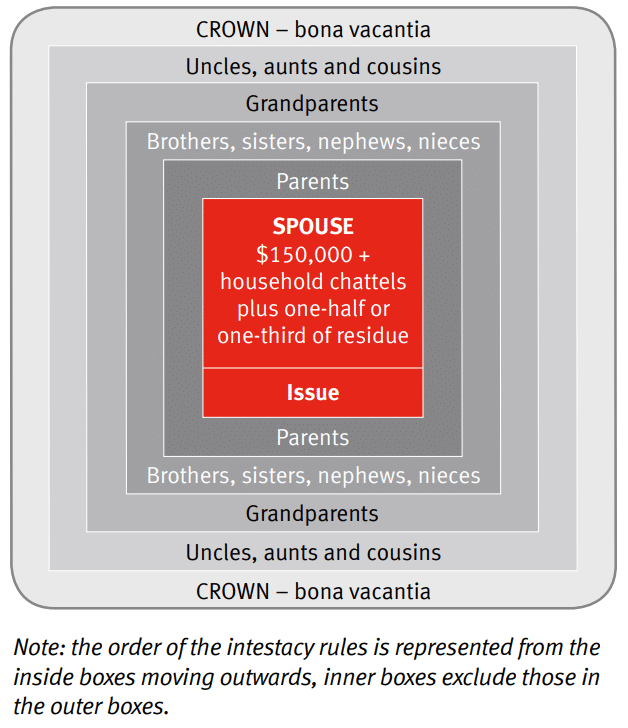
September 29, 2025
When someone passes away without a valid will, this is known as intestacy. In this situation, the law in each state and territory sets out a formular for how your estate is divided. These rules often follow a standard order – spouse first, then children, then other relatives, but they may not align with what you would have wanted.
Who usually inherits the intestate estate?
If you have a spouse and no children, your spouse will ordinarily receive the whole estate. If you have a spouse and children, whether the children receive anything depends on whether they are also the children of your spouse, as well as the laws of your state.

Family provision
Note that even when an estate is distributed under intestacy laws, certain family members or dependants may still be able to apply to the court if they feel they have been left without proper provision. These are called family provision claims. Eligible people – typically a spouse, partner, child, or someone dependent on the deceased, can ask the court to adjust the distribution. This process is separate from intestacy and can apply whether there is a will.
Exceptions to intestacy laws
Your super fund may decide which of your eligible beneficiaries receives your super, or it may pay the benefit to your estate. If your super fund allows for binding death benefit nominations, you can direct payment to an eligible beneficiary. Life insurance payouts on policies you personally own can also be directed in accordance with your wishes and may not necessarily form part of your estate. Remember jointly-owned property typically passes to the surviving joint owner.